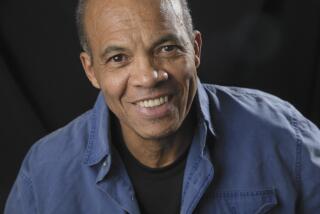Bosnian Serbs Won the War but Lost Their Way of Life
- Share via
PALE, Bosnia-Herzegovina — Ratko Tisanovic’s eyes move unconsciously to his calloused hands as he ponders how his role in the brutal siege of Sarajevo changed his life.
“Before the war, you couldn’t find what we had anywhere else in Europe,” recalls the former restaurateur who now earns barely enough from a sawmill job just outside Sarajevo to pay for the cigarettes that help take his mind off hunger and sorrow.
“But we lost all of this because we went to war for a state of our own,” he concedes. “We won the war, but we lost our friends and our families.”
Now divorced and dejected about the Bosnian Serbs’ ethnically homogeneous but economically devastated Republic of Srpska, Tisanovic regards the war as a tragic mistake.
“I was shooting at the city where I had worked all my life,” he says, recalling lost days of European travel and seaside vacations. “Now I see how stupid this was. Now people are sorry.”
One wake-up call to those who heeded the nationalist quest for a Greater Serbia has been the political demise of the man who incited Bosnian Serbs to take up arms against their Muslim and Croatian neighbors--Yugoslav President Slobodan Milosevic.
Milosevic Turns His Back
The angry and isolated people who live on the horseshoe of territory that makes up the Serbian republic within Bosnia-Herzegovina have come to recognize that they were betrayed by the man they long regarded as their savior.
Milosevic--who was ousted from power in a pro-democracy revolt last week in Belgrade, the Yugoslav capital--supplied Bosnian Serb proxies with weapons in the early 1990s and launched them on the bloody campaign to grab territory.
But when war crimes indictments sent his puppets, Radovan Karadzic and Gen. Ratko Mladic, into hiding, the more moderate figures who emerged to rule the Serbian entity were cut off by Milosevic as he turned his sights to Kosovo.
Left to pay the price of Milosevic’s gambit, Bosnian Serbs now live in economic as well as ethnic isolation. Foreign countries withhold aid to a state still resistant to reversing the war’s so-called ethnic cleansing.
Moral debts for instigating the conflict in which an estimated 250,000 people were killed and half the 4 million population uprooted also have come due.
North Atlantic Treaty Organization peacekeepers late Thursday tried to arrest one of dozens of Bosnian Serbs whom the international war crimes tribunal in The Hague has vowed to bring to justice. Rather than submit to capture and trial on charges of murder, rape and torture, Janko Janjic detonated a grenade in the town of Foca, where his crimes allegedly were committed. He died in the blast, and four German peacekeepers were wounded.
Karadzic and Mladic remain at large but might be more vulnerable to capture now that Milosevic can no longer protect them.
With the demands of daily life far more pressing now than politics, many of the 1 million residents of the Serbian republic have ceased to care about the fate of their wartime leaders.
“We are sick to death of politics,” insists Koviljka Kosmajac, a harried young mother forced to hitchhike from the outskirts of Sarajevo to shop in Pale because food is cheaper here. “I don’t trust anyone anymore. We have been betrayed so many times.”
Leaving Life in the Big City
Pale is particularly aggrieved because many residents of the village are former residents of once-urbane Sarajevo, just nine miles away, who were frightened into fleeing behind Serbian lines for their own protection. When the 1995 Dayton peace accord put control of the capital under the Muslim-Croat Federation that makes up the other half of Bosnia-Herzegovina, displaced Sarajevans such as Stana Maunaga were trapped.
“I lost more than my home in Sarajevo. I left behind theater, cinema, transportation and a civilized society,” says the nurse whose job and apartment were taken over by others after she left in 1992. “I am an educated Sarajevan. What am I doing in this place?”
A tiny mountain retreat for weekend skiing before the war, Pale swelled with empty-handed refugees during the conflict. Maunaga has opened a toy kiosk in Pale’s crude public market. But there is hardly any family in Pale with money for anything but food, and she earns only a pittance in her 12-hour days.
Some residents look abroad for their salvation. Maunaga would like to move with her husband and son to Canada or Australia if they could ever cobble together the money.
But others take some solace in the hope for stability in Yugoslavia since the inauguration of President Vojislav Kostunica and his 18-party coalition’s efforts to install a more democratic government.
“We fought because we thought it was necessary, but nobody won,” says Beli Skipina, another former gunman forced to reevaluate his role in the war that robbed him of work and stability. “We hope the changes in Yugoslavia mean things will be better for us.”
More to Read
Sign up for Essential California
The most important California stories and recommendations in your inbox every morning.
You may occasionally receive promotional content from the Los Angeles Times.














